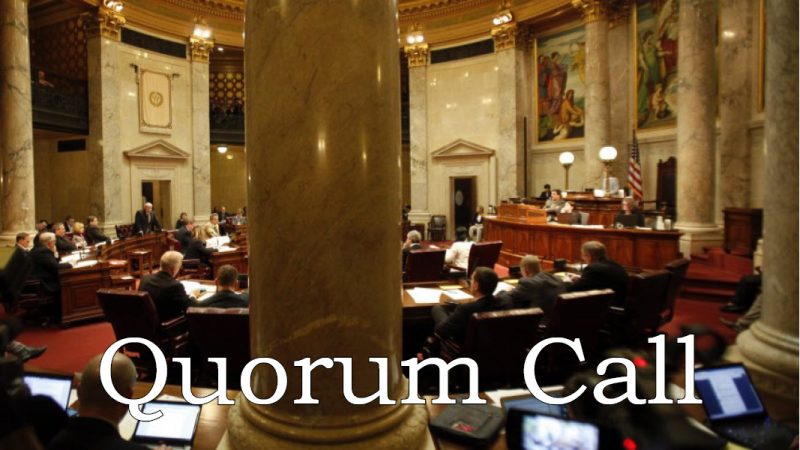Non-citizens would be barred from voting in Wisconsin and state and local governments would no longer be able to use private funds to cover election costs under constitutional amendments that cleared the Senate along party lines today.
The amendments already cleared both houses of the Legislature last session. After the Senate approved them 21-10 today, the Assembly would have to pass them before the Legislature adjourns this spring before they would go before voters in 2024.
Backers have signaled SJR 78, which would bar the use of private funds for election costs, would appear on the April ballot. Meanwhile, SJR 71, which would bar non-citizens from voting in local, state or federal elections, is slated for the November 2024 ballot.
The state Constitution already states that every U.S. citizen 18 or older who’s a resident of Wisconsin is a qualified elector eligible to vote here, subject to requirements established in state law. The amendment would add that only a U.S. citizen aged 18 or older can vote in a national, state or local election, as well as a referendum.
>> WisPolitics is now on the State Affairs network. Get custom keyword notifications, bill tracking and all WisPolitics content. Get the app or access via desktop.
It was proposed after some communities began allowing non-citizens voting in local elections, such as those for school board.
The amendment to bar private money in Wisconsin elections was sparked by the grants a group largely funded by Facebook founder Mark Zuckerberg gave to state communities ahead of the 2020 election. Altogether, 196 communities received $10.3 million, with $8.8 million of that going to the state’s five largest cities.
The amendment also seeks to ban anyone other than an election official designated by law from performing any task related to a primary, general election or referendum.
The Senate also approved two constitutional amendments up for first consideration.
SJR 73 would add a photo ID requirement to the state Constitution. Currently, that is only in state law. Meanwhile, SJR 54 would bar the closure of a house of worship in response to a state or emergency, including for public health.
Backers of the photo ID amendment said it was introduced to safeguard against a challenge to the state statute with the liberal majority on the state Supreme Court.
Various government orders closed houses of worship during the COVID-19 pandemic.
The Senate also approved those amendments 21-10.



